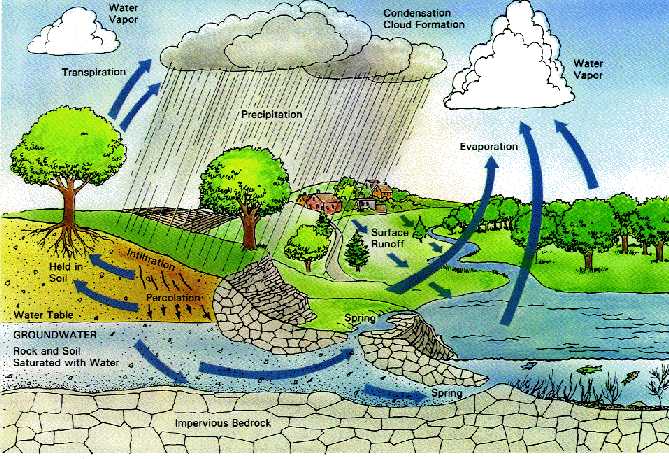
Traditionally practice of gathering, accumulating and storing of rainwater in arid lands was customary for providing water during lean periods for domestic, livestock and irrigation purposes. Environmental changes rapidly affecting our climate, rainfall is getting erratic with each passing year. With rising human & livestock population demand for surface water has increased manifold, such that ground water levels cannot get replenished. This problem is even more acute in urban areas, where nearly 60% of rainwater is just washed away without being treated before draining into the river or unable to get filtered through the soil for recharging the water table due to sprawl of urban settlements. Due to non charging of rainwater during rainy season, urban areas experience floods which destroy infrastructure and crops in surrounding suburban areas. Hence there is a foremost necessity to propagate harvesting of rainwater in urban areas. As water is essence of life, we must learn to use this precious natural resource more judiciously.
Shortage of potable water supply in urban areas is a major problem being faced by countries around the world. As underground water is depleting day by day, we must find ways by which water levels in these natural reservoirs can be maintained. Any imbalance in the hydrological pressure could spell doom, for land mass above it could cave in at any time. Certainly having large lakes or building dams cannot solve our fresh water problem for the continuous spread of urban population. All this can be managed only through a sound water management policy both at macro as well as micro levels. The age old tradition of harvesting rainwater could be the ready answer for more efficient utilization of water for our daily necessity as well as for recharging back into the groundwater aquifers.
RAINWATER HARVESTING in urban areas can have manifold advantages. Besides domestic use for watering, flushing and laundry it can supplement the city `s drinking water requirements, help in increasing moisture in soil for greenery, increase the ground water level as well as mitigate urban flooding. Comparing the one time cost to build rainwater storage systems over constant rising energy bills for oil, gas and electricity, it is strongly recommended for any self-respecting home builder to buy this peace of mind as in future nothing is going to be tax-free.
A simple calculation can show the amount of waste we can stop if we learn to conserve rainwater in our daily lives. Taking a house of 100 sq mts, built in a place where there is 500 mm of annual rainfall and assuming that only 60% of it is getting harvested, could give us appox 30000 liters of water per annum.
As water conservation is becoming popular day by day, more people have begun to make their own homemade rainwater installations. These could range from the traditional rain barrel technique to more complex greywater systems in which extra pressuring equipment, inline pump controllers and distillation equipment are put to use.
Basically water harvesting techniques can be divided into two broad categories.
ROOFTOP RAINWATER HARVESTING :
Under this system rainwater collected on rooftop is transported through pipes to a settlement tank / soak pit for storage and future use.
STORM WATER RECHARGING :
Clear storm water is collected through separate drains free from contamination, which is then filtered before storing in recharge tank / well for future use.
This domestic model could similarly be put to wider use by making a community based approach in which larger apartments, schools, commercial complexes and civic constructions could help in better utilization of rainwater.
To be a responsible citizen, each one of us must vow to conserve freshwater for healthy living.
;
|
Bookmark this post:
|
|
Subscribe to:
Post Comments (Atom)


very nice
I've recently heard about harvesting rainwater and wanted to try it out because I do agree that it'll probably help to learn how to use this natural resource more judiciously. The advantages of doing this are amazing. Where would someone begin if they were bearly starting out? http://www.rainagaintanks.com.au